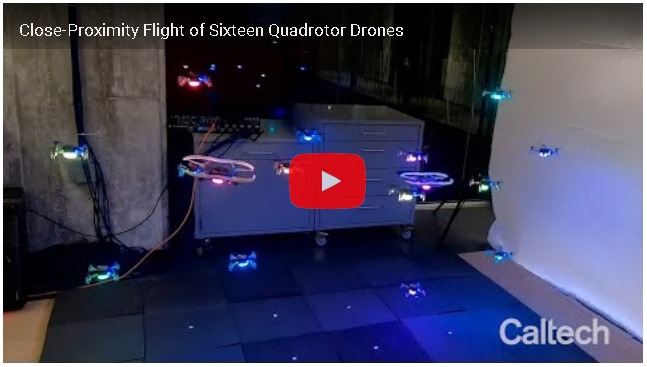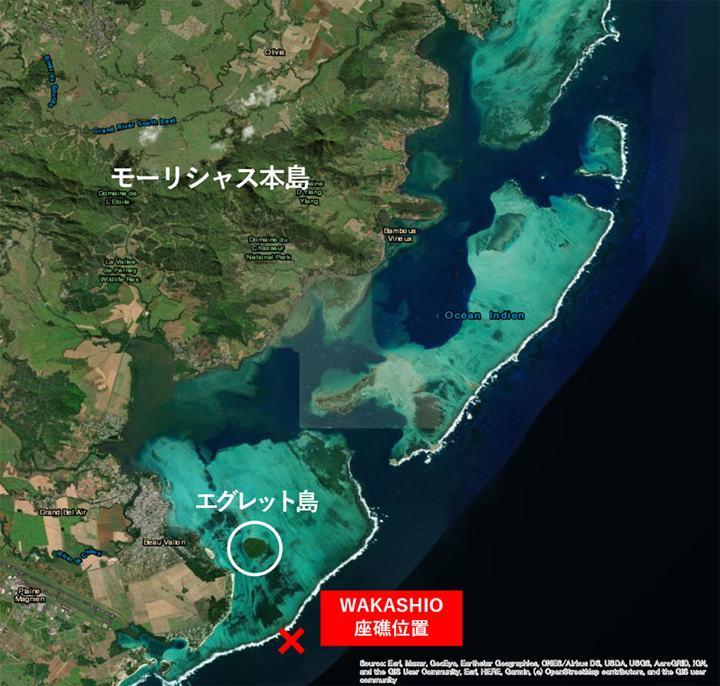(Machine Learning Helps Robot Swarms Coordinate)
2020/7/13 アメリカ合衆国・カリフォルニア工科大学(Caltech)
・ Caltech が、複数のロボットが衝突せずに障害物のある空間や未踏の空間を移動できるようにする 、 ロボット群のモーショ ンプランニングアルゴリズム、「Global-to-Local Safe Autonomy Synthesis(GLAS)」と、近接飛行時の空気力学的なインタラクションを学習するドローン群追跡コントローラー、「Neural-Swarm」を開発。
・ 都市型捜査救助、自動運転車の隊列走行から障害物を回避するドローンの編隊飛行に及ぶ多様なアプリケーションでは、複数のロボットによる運動協調が重要。その主要な 2 つの課題は、未知の環境では後続経路に関するデータが不完全でも瞬時で軌道を決断する必要があること、また、多数のロボットが存在する空間では、それらのインタラクションがより複雑化したり衝突が起こりやすくなること。
・ 新開発のこれら手法を利用することで、ロボットやロボット群の挙動・経路を決定するための包括的で完全な環境データが不要となる。
・ ロボット群は空間での移動方法を瞬時に学習し、その「学習済みのモデル」の挙動を通じて新しい情報を取り入れる。ロボット群中の個々のロボットに必要なものはその周囲環境の情報のみであるため、分散型の演算処理が成り立つ。これにより、ロボット群の規模を容易にスケールアップできる。
・ これらのデータ駆動型の手法は、従来のブラックボックス的な AI によるアプローチの安全性、ロバスト性およびスケーラビリティーの課題解決につながる結果を提示し、マルチエージェントのプランニングとコントロールへの機械学習手法の統合の可能性を実証すると共に、機械学習研究の新指針を明示する。
・ これらの「GLAS」と「Neural-Swarm」を適用し、Caltech 内の Center for Autonomous Systems and
Technologies(CAST)のオープンエアードローンアリーナにて、16 機のドローンの飛行試験を実施。
・ 「GLAS」では、現在最先端のマルチロボット・モーションプランニングアルゴリズムの性能を 20%上回ることが可能なこと、また「Neural-Swarm」コントローラーでは、3 次元空間でドローンが方向を確定し、適切な位置を追跡するための重要なメトリックであるエラー・トラッキングが、市販のものに比べて最大で 1/4 に減少したことを確認した。
URL: https://www.caltech.edu/about/news/machine-learning-helps-robot-swarms-coordinate
<NEDO海外技術情報より>
(関連情報)
CaltechAUTHORS 掲載論文(フルテキスト)
GLAS: Global-to-Local Safe Autonomy Synthesis for Multi-Robot Motion Planning With End-to-End
Learning
URL: https://authors.library.caltech.edu/103207/
(関連情報)
CaltechAUTHORS 掲載論文(フルテキスト)
Neural-Swarm: Decentralized Close-Proximity Multirotor Control Using Learned Interactions
URL: https://authors.library.caltech.edu/99548/
Abstract
In this paper, we present Neural-Swarm, a nonlinear decentralized stable controller for close-proximity flight of multirotor swarms. Close-proximity control is challenging due to the complex aerodynamic interaction effects between multirotors, such as downwash from higher vehicles to lower ones. Conventional methods often fail to properly capture these interaction effects, resulting in controllers that must maintain large safety distances between vehicles, and thus are not capable of close-proximity flight. Our approach combines a nominal dynamics model with a regularized permutation-invariant Deep Neural Network (DNN) that accurately learns the high-order multi-vehicle interactions. We design a stable nonlinear tracking controller using the learned model. Experimental results demonstrate that the proposed controller significantly outperforms a baseline nonlinear tracking controller with up to four times smaller worst-case height tracking errors. We also empirically demonstrate the ability of our learned model to generalize to larger swarm sizes.




